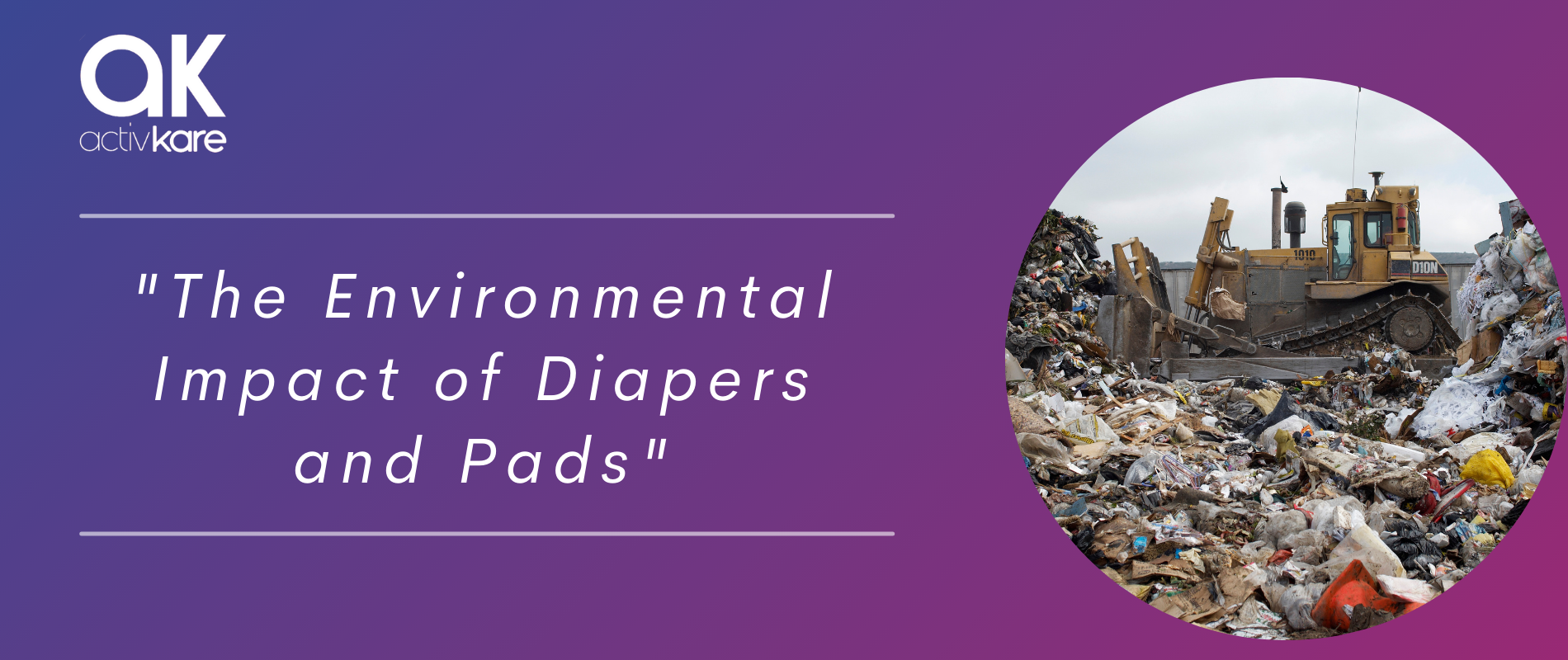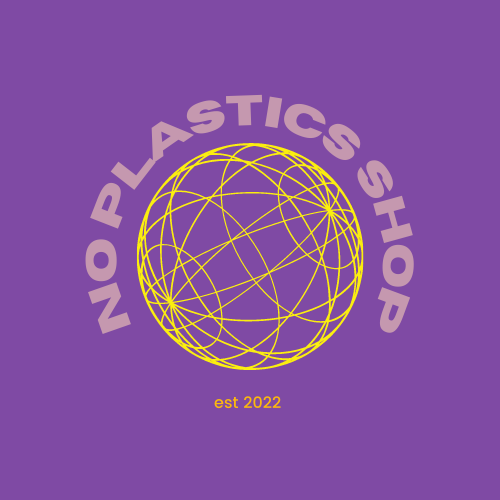Eco-Friendly Diapers: Plastic Free Adult Incontinence Products
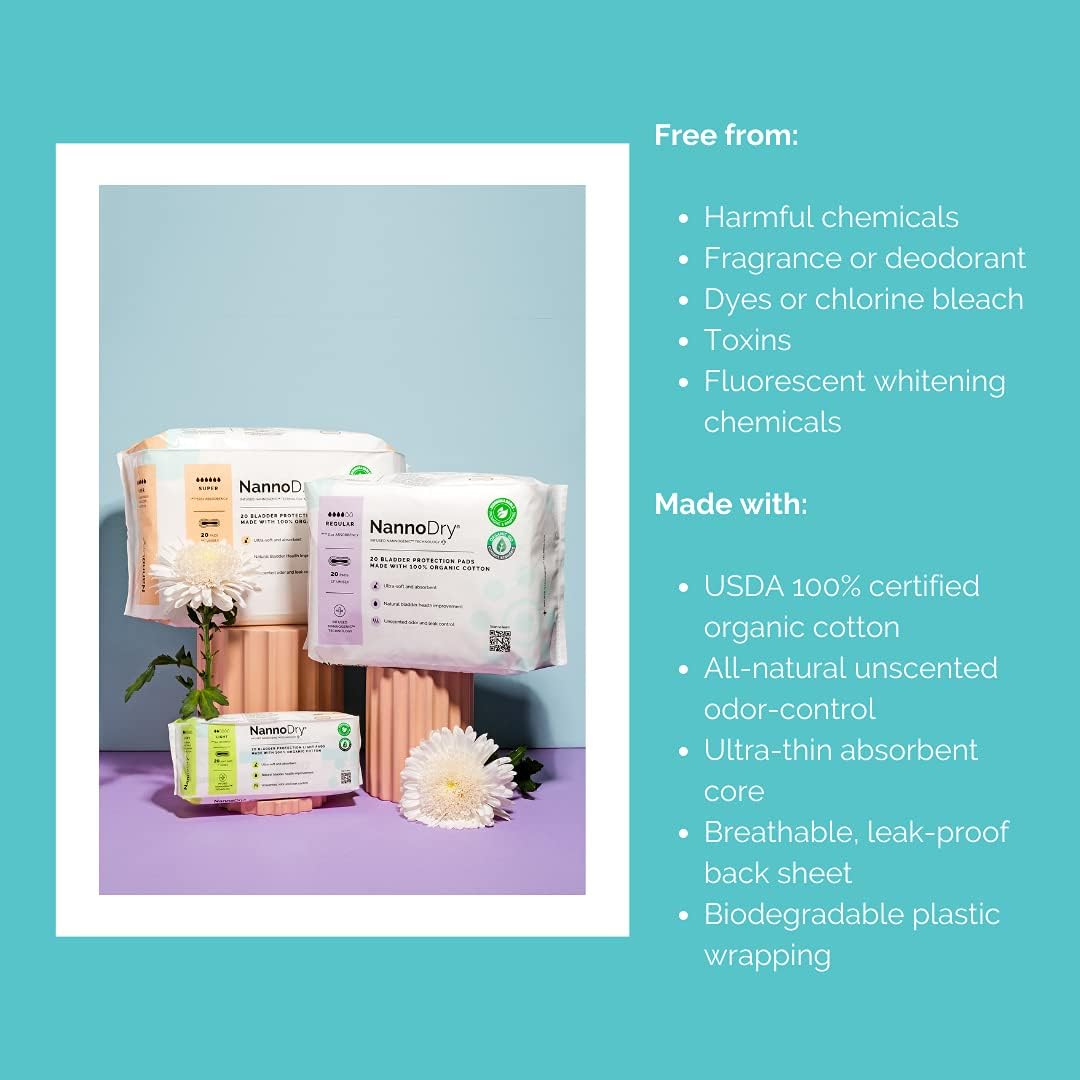
Introduction to Eco-Friendly Adult Incontinence
As the world becomes increasingly aware of the importance of sustainability, the demand for eco-friendly products is on the rise. One area that has seen significant growth in recent years is eco-friendly adult incontinence products. These products are designed to provide comfort, dignity, and protection for individuals with incontinence issues while minimizing their impact on the environment.
For Plastic Free Baby Diapers Go Here
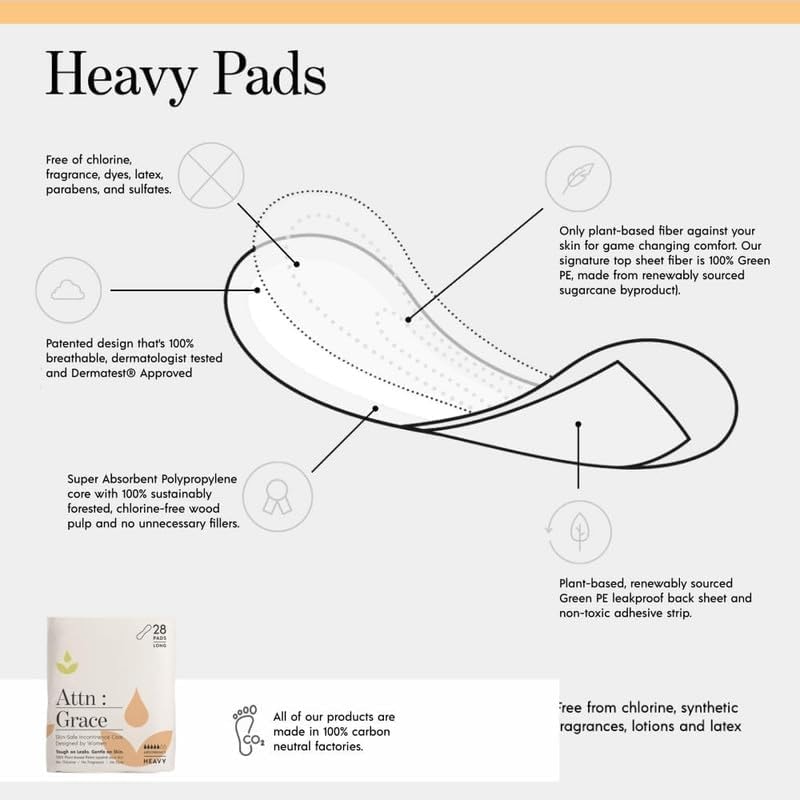
Grace All Natural heavy overnight incontinence pads
Eco-friendly adult incontinence products are not just a trend; they are a necessity in our fight against environmental degradation. With the alarming amount of waste generated by traditional disposable diapers, it’s crucial to explore alternatives that are kinder to our planet. These products offer a sustainable solution without compromising on quality or effectiveness, making them an excellent choice for those who are environmentally conscious.
What are Eco-Friendly Adult Incontinence Products?
Eco-friendly adult incontinence products are designed to reduce waste, conserve natural resources, and promote sustainable practices. These products are made from biodegradable materials, such as bamboo, cotton, and sugarcane, which are gentler on the skin and the environment. They are also free from harsh chemicals, fragrances, and dyes, making them a healthier choice for individuals with sensitive skin.
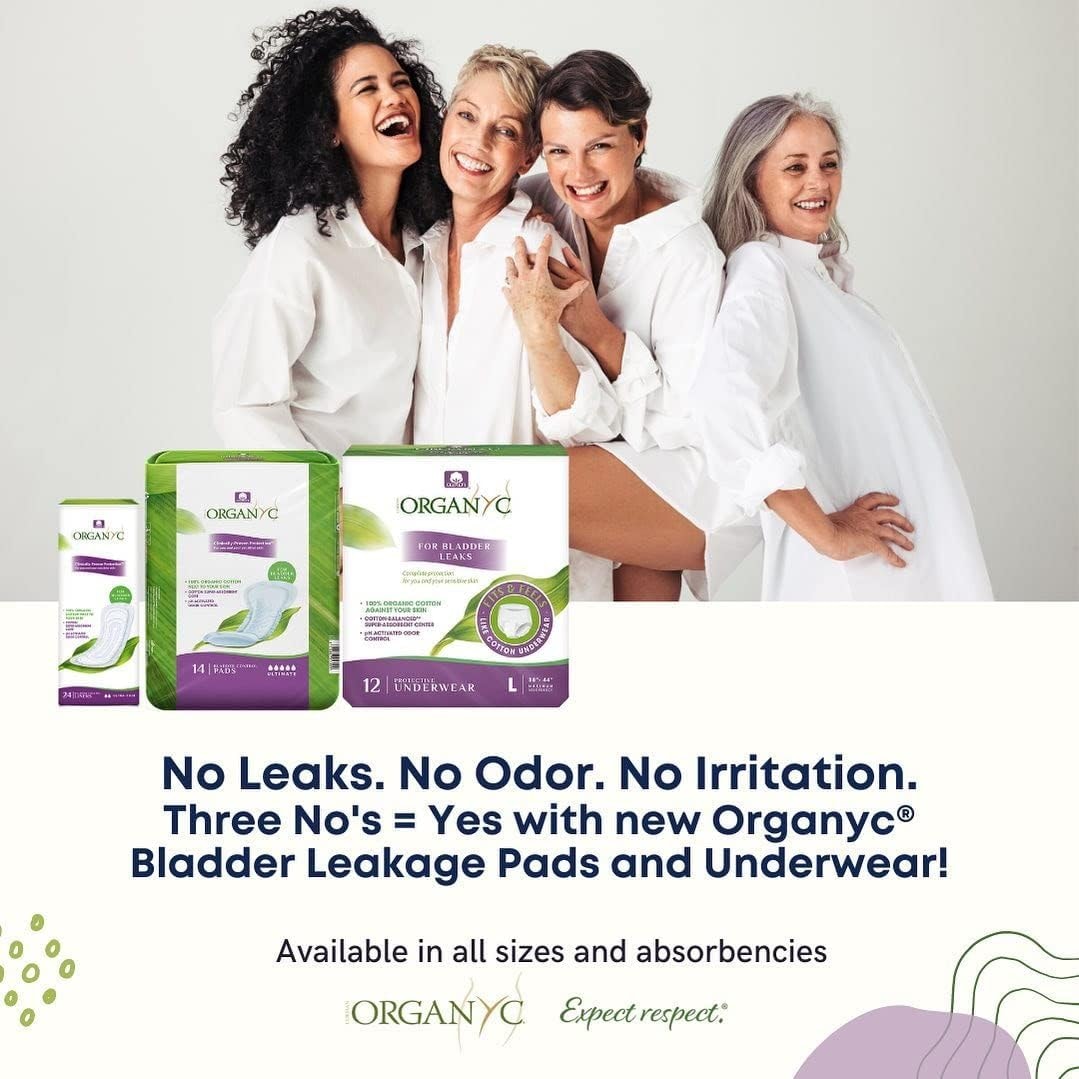
Organyc. heavy incontinence pads, zero waste
Unlike traditional disposable diapers, which can take hundreds of years to decompose, eco-friendly adult incontinence products break down much faster, reducing their environmental footprint.
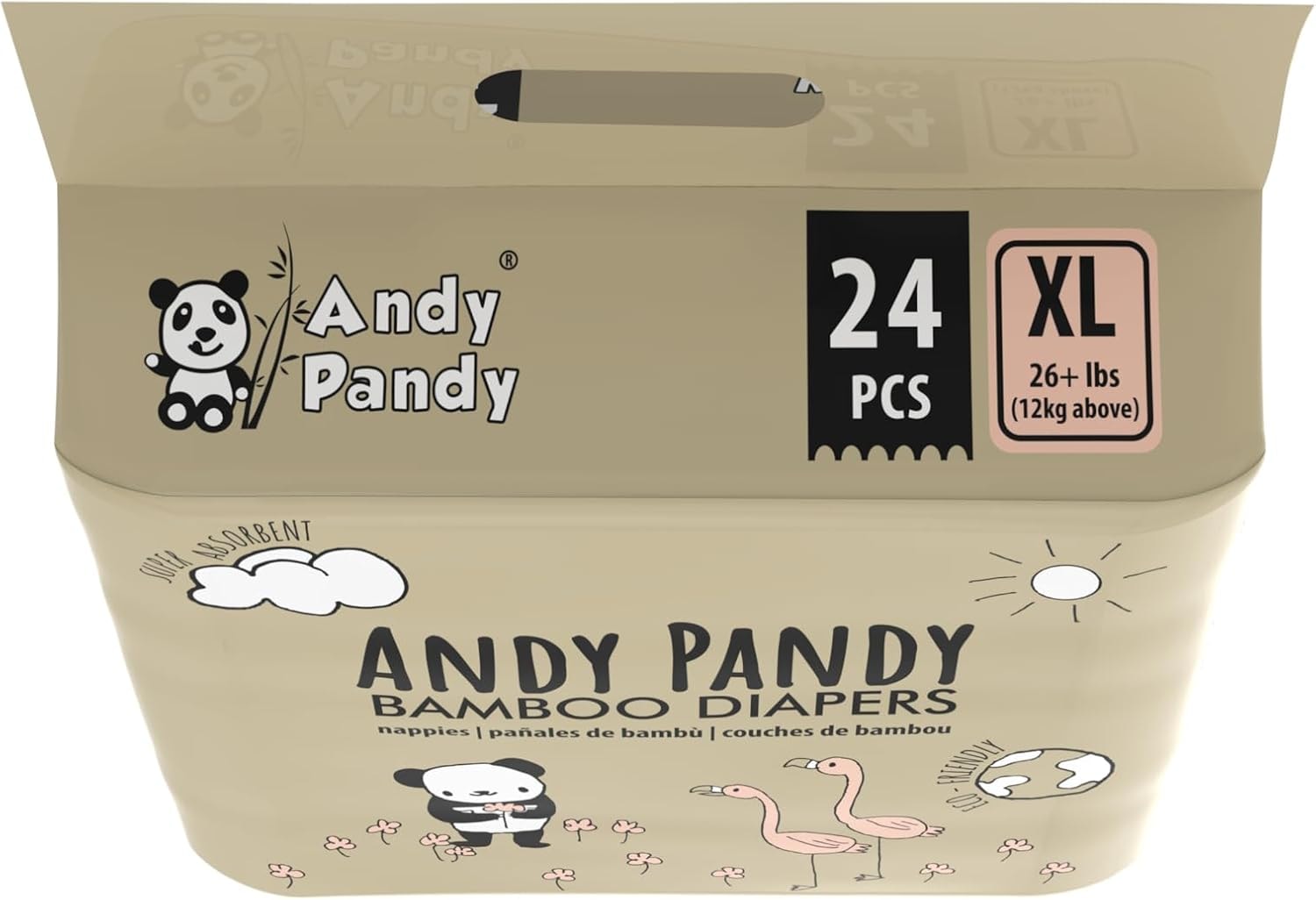
Brands like Andy Pandy Diapers and others are leading the way by offering products that are not only effective but also environmentally responsible. By choosing these eco-friendly options, you are not only taking care of your needs but also contributing to a healthier planet.However so far I have only found child sizes for this brand.
For All Natural Compostable Baby Diapers Go Here
Environmentally Friendly Adult Diapers and Pads: The Best Sustainable Options for You
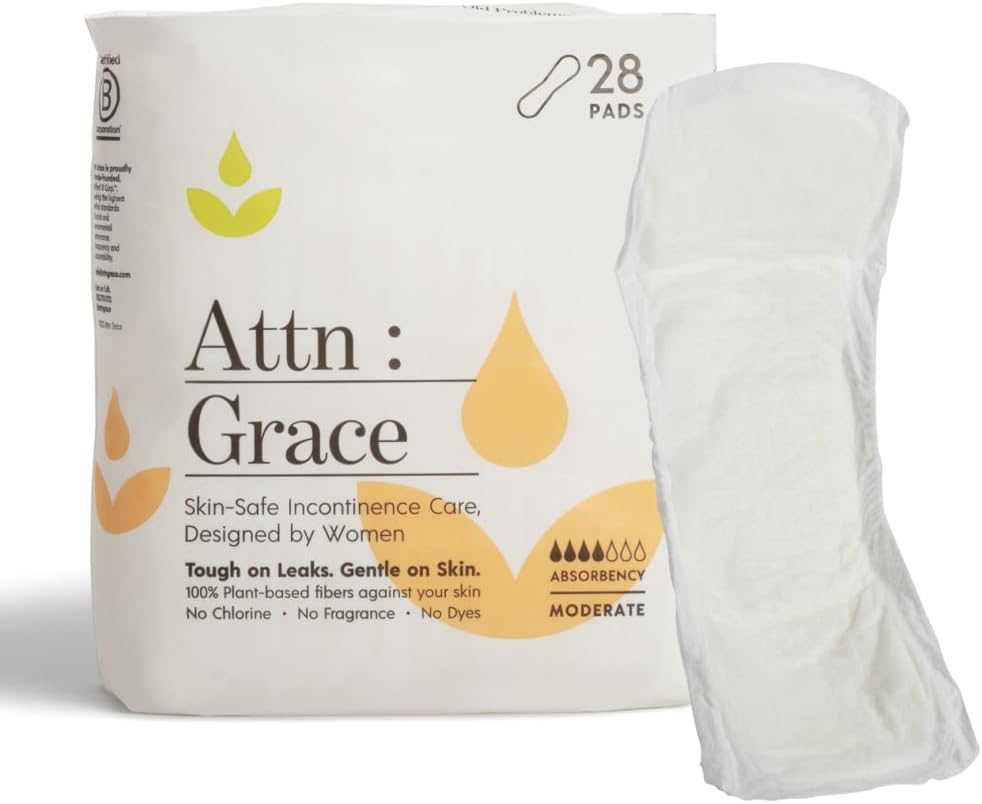
Attn : Grace 100% plant based natural materials for moderate incontinence
Do Eco-Friendly Disposables Really Exist For Adults?
Talking about plain and basic things can be dull, but what if we tell you that we are here to talk about adult diapers, and more specifically, eco-friendly adult diapers? Yes, you heard it right. We all know how much of an environmental threat plastic waste is, and adult diapers are just another contributor.
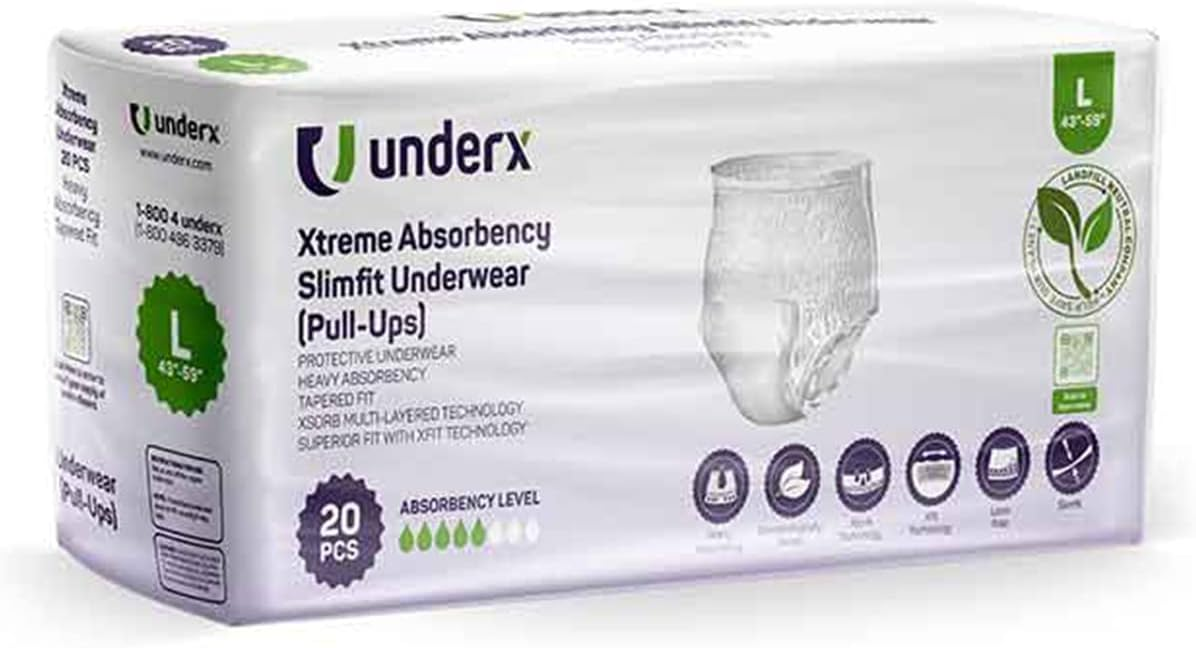
Uderx Store. disposable plant based cloth diapers
Types of Eco-Friendly Diapers
However, most of us often only consider the environmental cost of baby diapers, forgetting about the ever-increasing demand for adult diapers, leading us to search for more sustainable and zero-waste product options. Eco-friendly materials are gentle on baby's skin, providing comfort and helping to prevent issues like diaper rash.
Let’s discuss the top brands producing the best eco friendly diapers in-friendly adult diapers that are not only suitable for the environment but also for your delicate skin.
Sustainable + Breathable But What Are SAPs?
When it comes to adult disposable incontinence diapers, the use of SAP (Super Absorbent Polymers) is no secret. But, what's kept under wraps is the origin of these nifty little absorbent beads - are they bio-based or a petroleum product? The lack of clear product labeling leaves us scratching our heads, pondering the sustainability of our incontinence product choices.
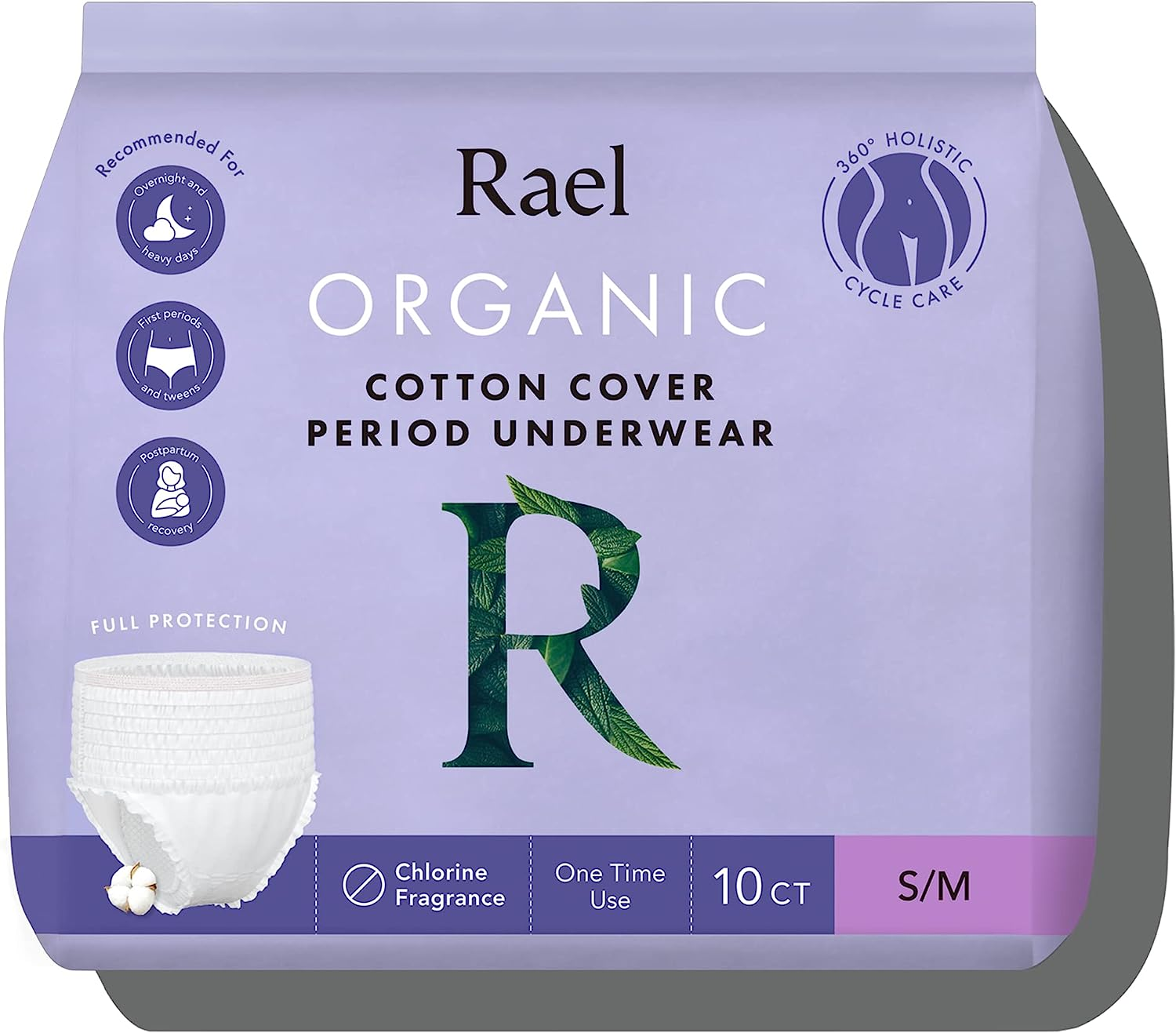
Rael is unfortunately one such brand. Their cotton is organic but their wood pulp core is laced with polypropylene, poltethlene (plastic) polymers :( Do Not Purchase!
Good And Bad SAPs and What Are They?
You see, bio-based SAPs are derived from renewable resources such as corn starch, wheat starch or sugar beet pulp. On the other hand, petroleum-based SAPs are synthesized from propylene and other petrochemicals, making them dependent on finite fossil fuel resources.
So, why does it matter you ask? Well, for starters, it affects the carbon footprint of your incontinence products. Bio-based SAPs are much more environmentally friendly, producing less carbon emissions and reducing dependency on fossil fuels. Plus, they also compost more readily, reducing landfill waste and contributing to a circular economy.
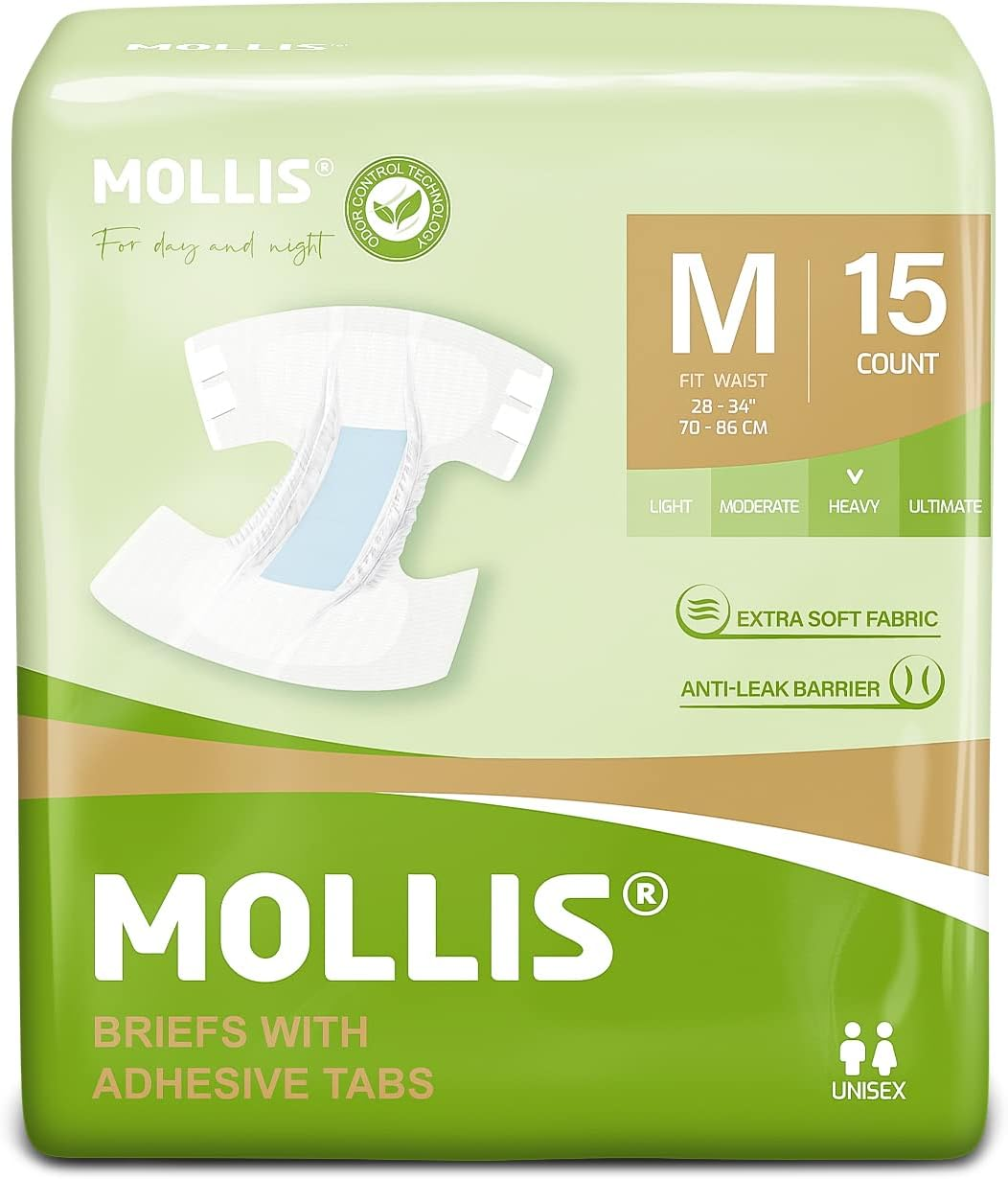
Mollis. is unfortunately another, it's SAP source material unidentified. :(
Without clear labeling, how are we supposed to make informed decisions about our incontinence care? We shouldn't have to dig through scientific jargon and industry jibber-jabber to make conscious choices. It's time for transparent labeling that tells us exactly what we're putting on and taking off!
Better Disposables Diaper To Prevent Diaper Rash
Makers of better disposable diapers emphasize the importance of materials that protect adult's skin in preventing diaper rash, just like a baby's, because they breathe. So eco friendly diapers are not just better for the planet, but our well being and comfort. Avoid any irritating diaper rash. Let’s talk about why regular adult disposable diapers are harmful to the environment.
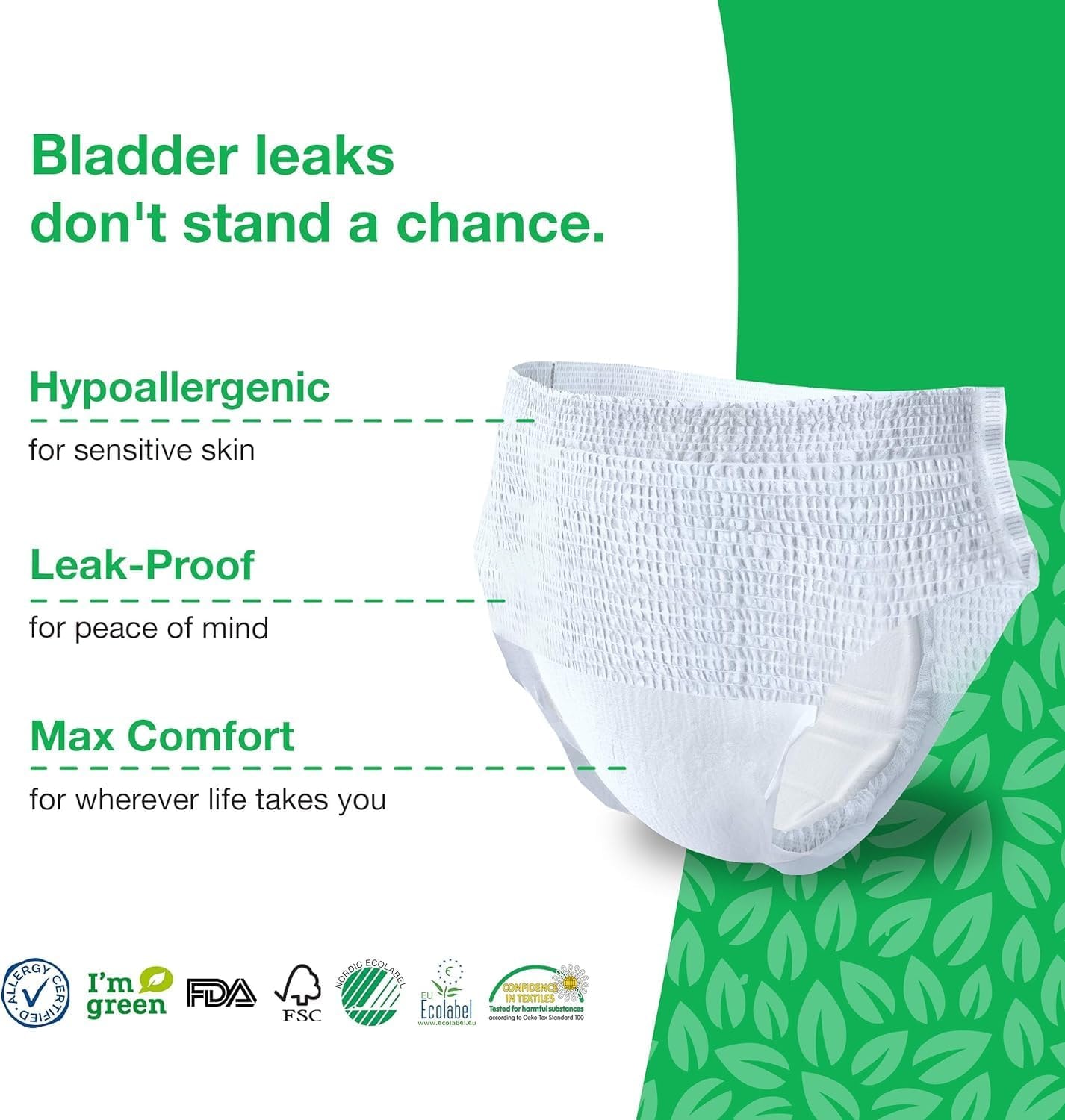
The problem with adult diapers is that they are not biodegradable, meaning they cannot break down naturally, filling our landfills and significantly contributing to the global plastic waste problem.
Look For Compostable + Transparent Ingredient List
Additionally, the toxic chemicals used in these diapers can also take up to centuries to decompose, releasing harmful gases into the atmosphere. The good news is, many companies have understood this issue, and have come up with new and more sustainable diaper solutions.
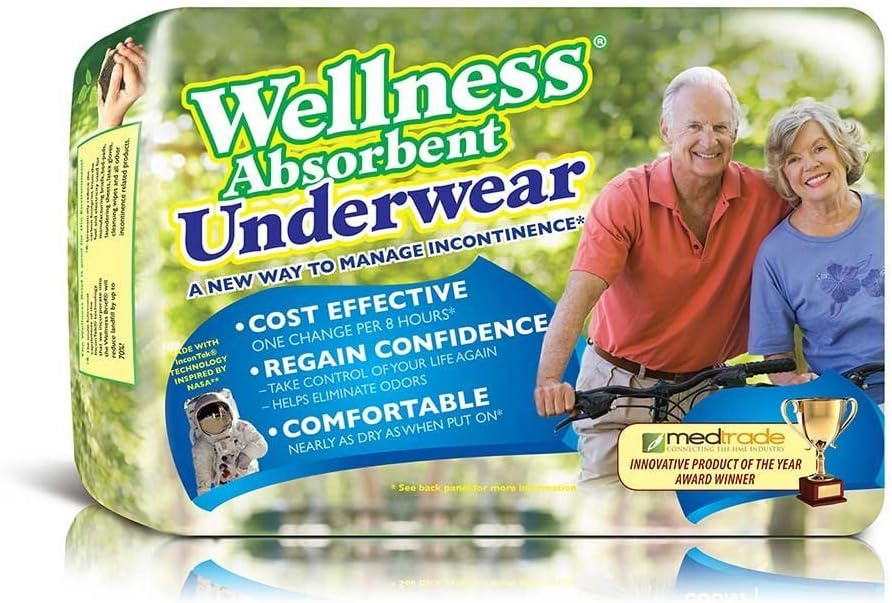
Unique Wellness. Proports to be an eco friendly disposable diaper yet you will not find any material labeling. (Even when contacted, the company could not tell me.)
Eco-Friendly Adult Diapers for The Environment
Eco by Naty offers an eco friendly diaper option with their eco-friendly incontinence pads made from natural bamboo fiber. These diapers not only reduce plastic waste but are also gentle on the skin, hypoallergenic, and biodegradable. Moreover, the brand also ensures that their manufacturing process for bamboo diapers is cruelty-free and completely environmentally friendly.
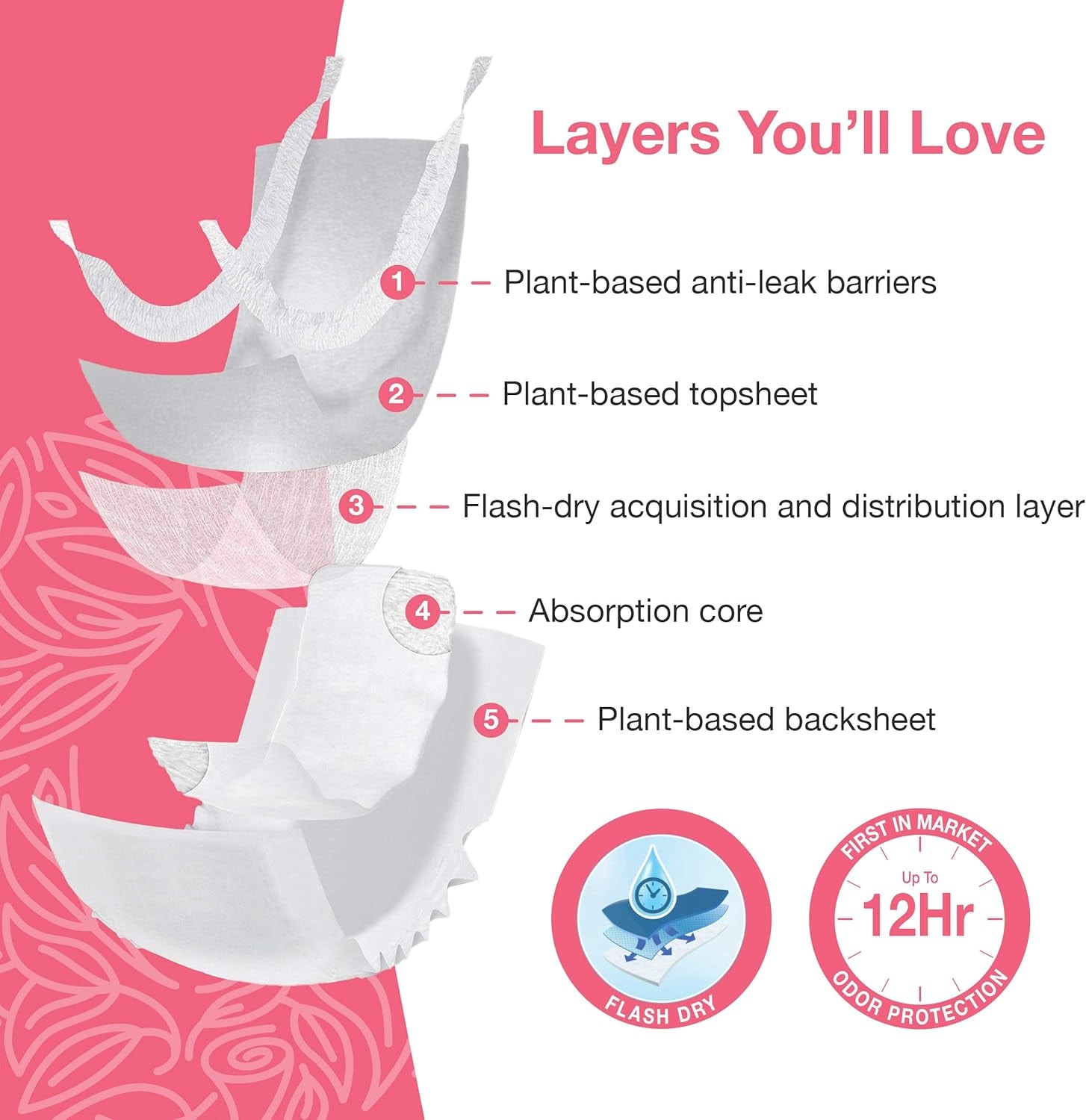
Veeda For Women. natural incontinence underwear
Adult Eco Disposable Diapers Are Often Hard To Find
But not impossible. Naty, also creates adult diapers that are made with plant-based materials and are compostable. This means that these diapers can easily decompose and turn into natural fertilizers, contributing positively to the environment. The brand also ensures to avoid chemicals such as chlorine, phthalates, and latex, making their natural diapers gentle on the skin.
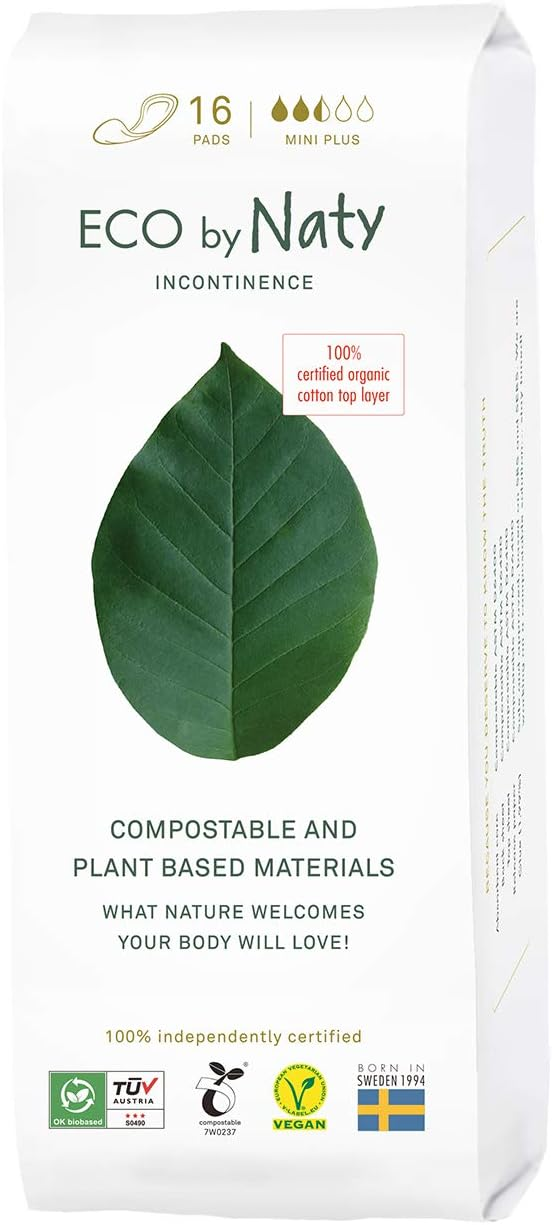
Eco by Naty. completely plant based all natural materials
Best Biodegradable Eco-Friendly Disposable Diapers
Bambo Nature is another brand eco diapers that is known for producing zero-waste adult diapers. Their diapers are made from sustainable materials, and the company has even achieved several eco-label certifications. They are also fragrance-free and latex-free, making them a perfect option for those with sensitive skin.
Best Plant-Based Eco-Friendly Disposable Diapers
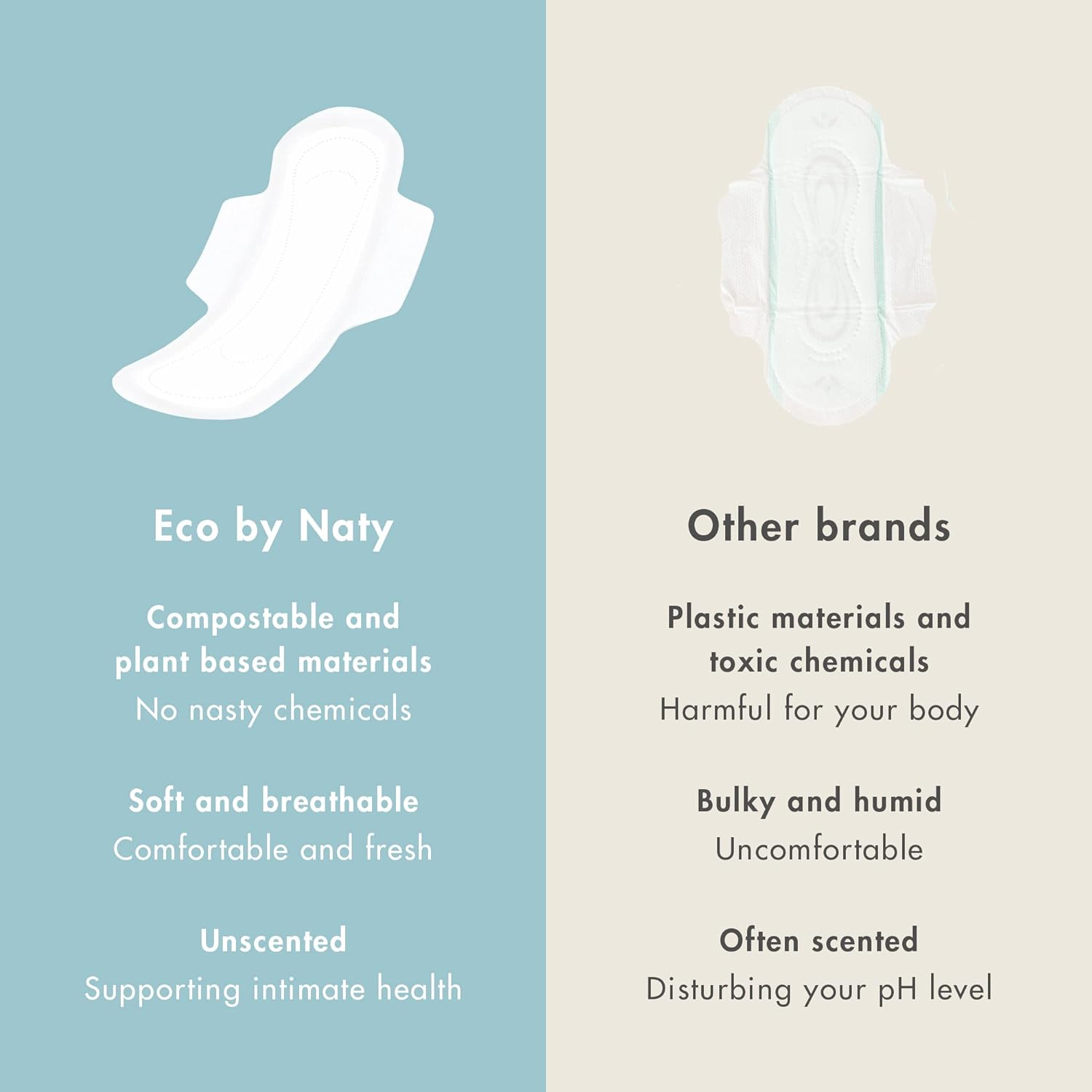
Eco by Naty. zero plastics
Are Compostable Diapers Really Compostable?
As the world's population continues to grow exponentially, the need for better, more sustainable, and environmentally-friendly products has become more pressing than ever.
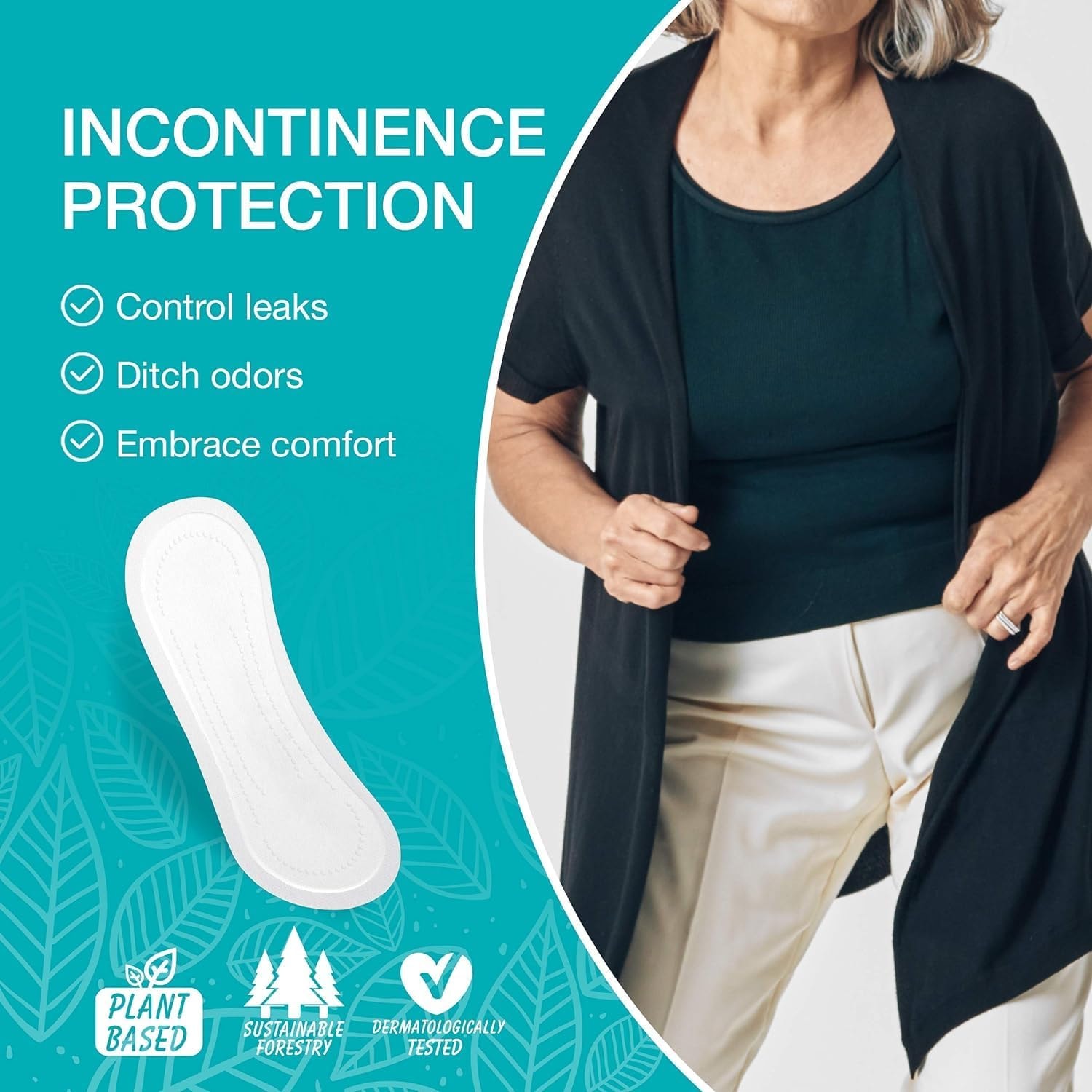
Veeda Ultra Thin light incontinence protection, zero plastic, compostable
The products that has been generating a lot of buzz lately are compostable. The promise of a disposable diaper that that can biodegrade instead of rotting in landfills for centuries is undoubtedly an attractive one, but are these diapers really as compostable as they claim?
Truly biodegradable diapers seem like the perfect solution to a problem that has plagued both adults and parents for decades. The idea is simple: you use the diaper as you normally would, and once you or your little one is done with it, you toss it into the compost bin instead of the garbage can.
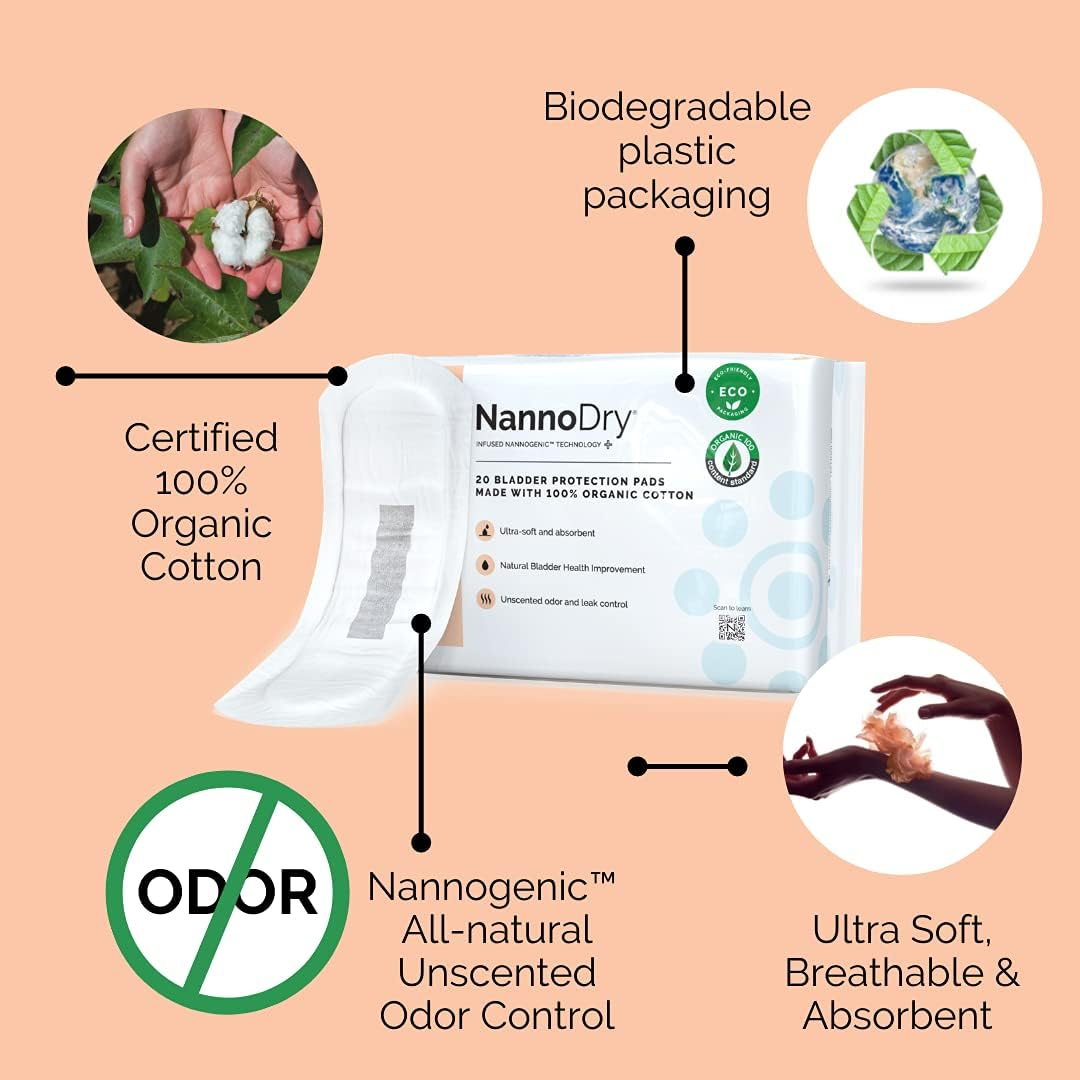
NannoDry. Their cotton is organic and their packaging is biodegradable, but one van only hope it's not the PBAT (microplastic) kind. Insufficient labeling once again :(
But here's the thing: composting is a delicate process that requires specific conditions to work properly. And if the the product is not entirely made from plant based materials, it won't decompose within a realistic amount of time, and are then not truly compostable.
So, are compostable diapers actually compostable? Well, that depends on who you ask. According to the Federal Trade Commission, a product can only be labeled "compostable" if it can break down in a compost pile within a "reasonable amount of time." And what is a reasonable amount of time, you ask?
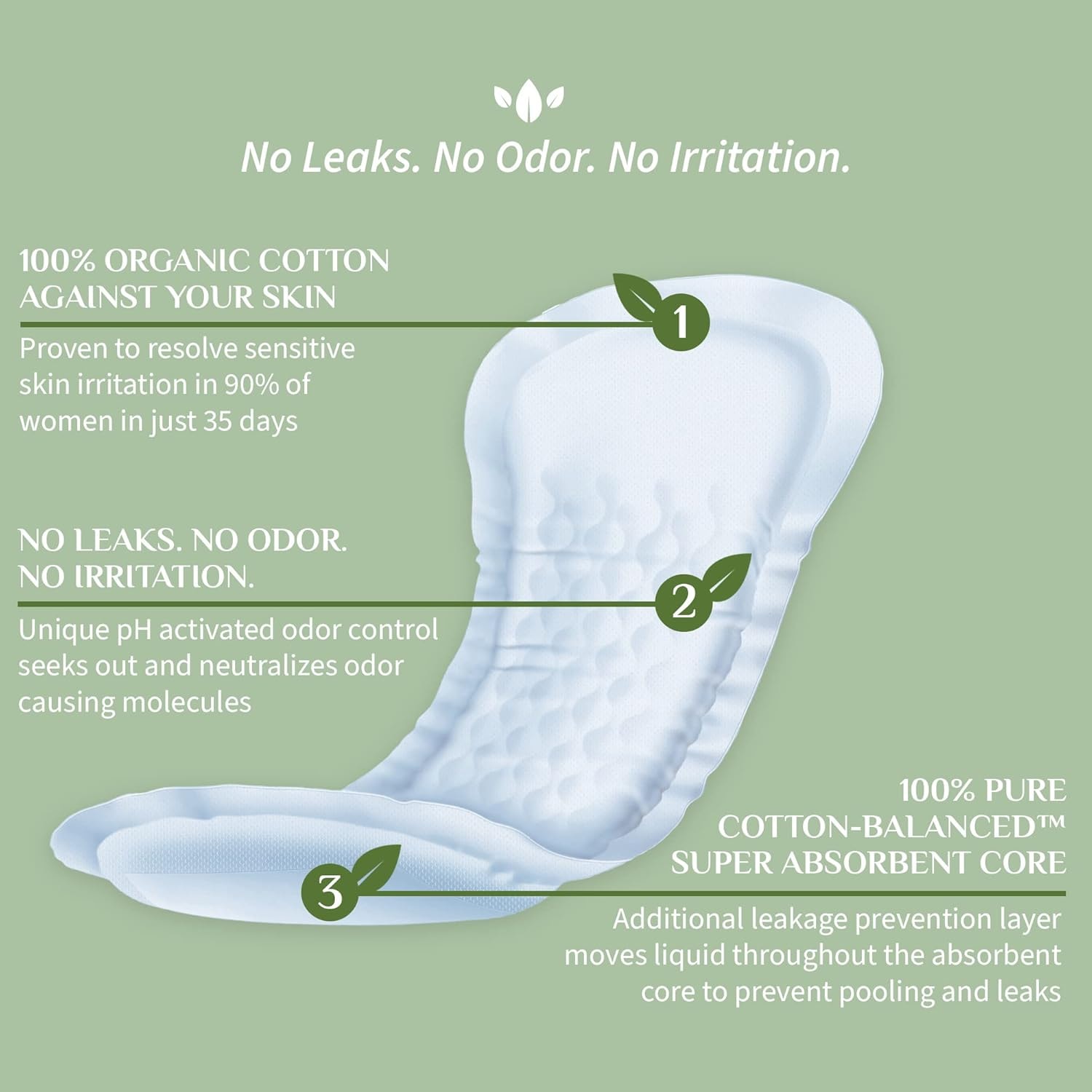
Organyc plastic free ultra flow incontinence pads
Three months. That's right, earth friendly diapers must completely biodegrade within just three months to be considered truly compostable.
Unfortunately, not all biodegradable disposables meet this standard. In fact, a study conducted by the New York Department of Environmental Conservation found that some compostable diaper brands took up to six months to fully biodegrade!
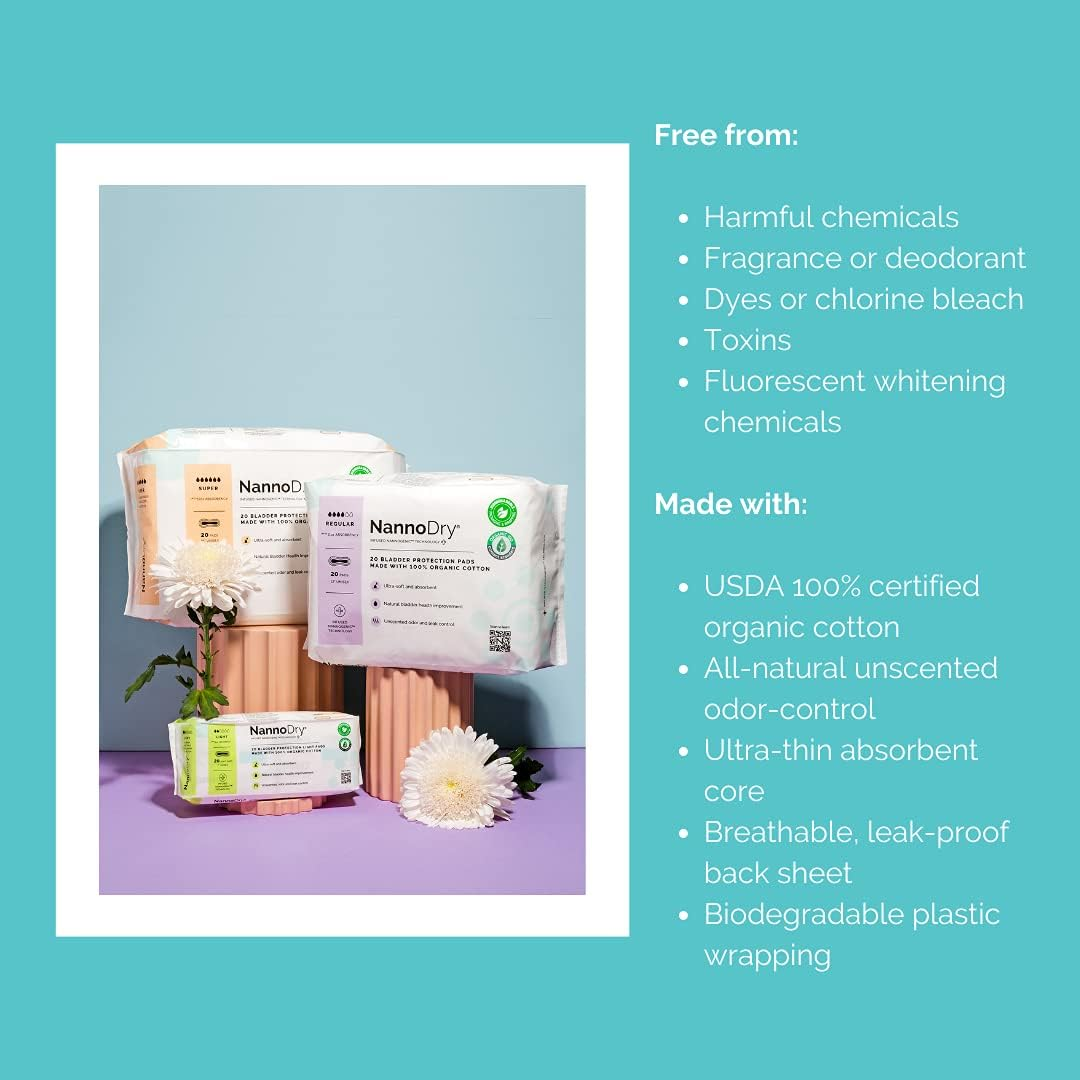
NannoDry. May contain microplastics (we just don't know)
That's twice the amount of time that the FTC deems "reasonable." And to make matters worse, some brands failed to break down completely at all.
So, does composting diapers have a place in our waste-reduction efforts? Absolutely. But it's important to do your research and choose a brand that lives up to its claims. And in the meantime, maybe consider using cloth diapers or opting for a brand with a lower environmental impact.
After all, a diaper that ends up in a landfill eventually will always have a larger environmental impact than one that doesn't.
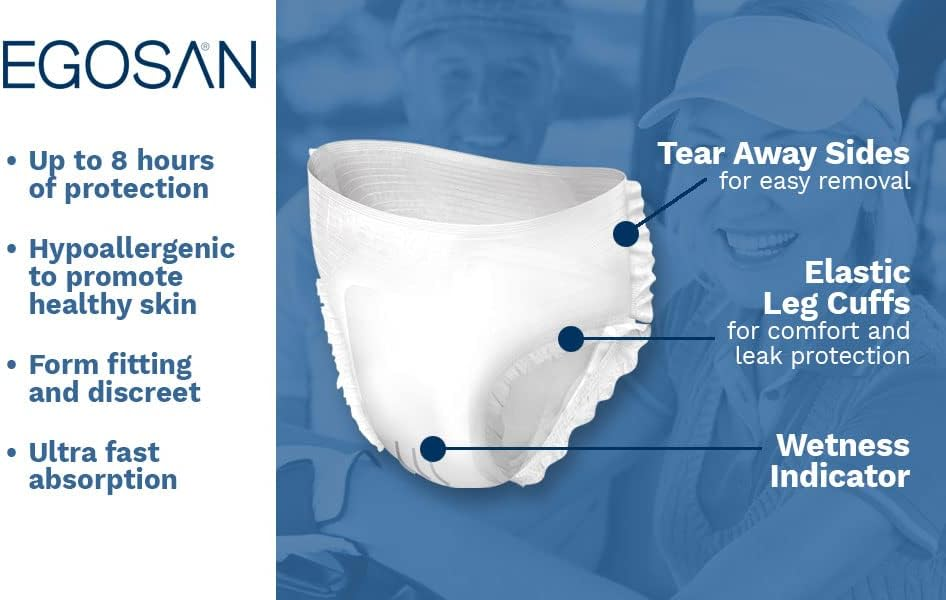
Eosan uses some material from sustainably managed forests, but for sure contains some kind of unidentified plastic :( Do Not Purchase!
As we become more conscious of the environment, it is essential to consider the products we use daily and how they affect our planet. Adult diapers are just one of those products that contribute significantly to plastic waste and the degradation of the environment.
Choose Environmentally Friendly Diapers
However, as we have shown in this blog post, there are eco-friendly options available to us that not only benefit the environment but our own well-being. By switching to zero-waste adult diapers, we can all make a difference and create a better future for generations to come.
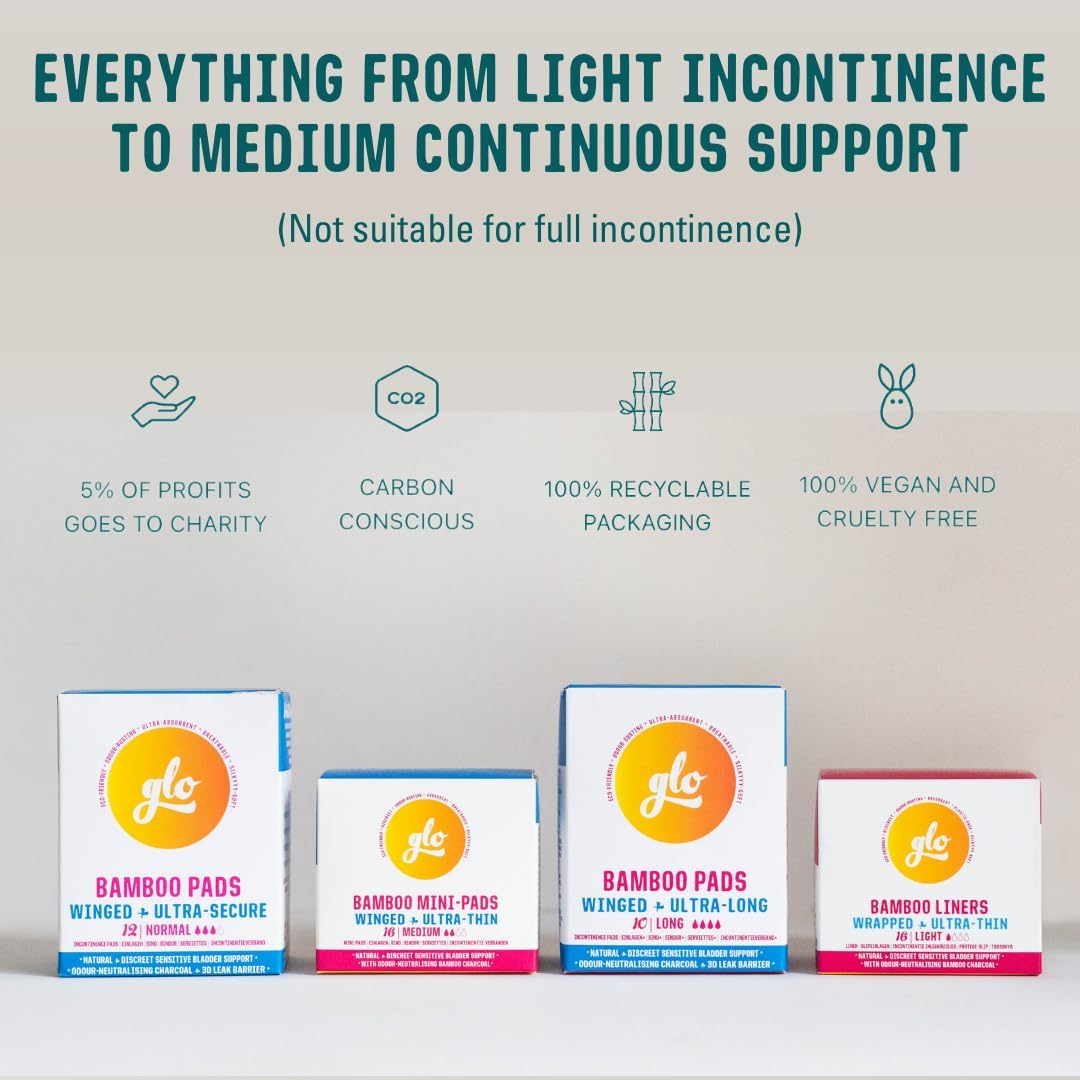
The Flo Store. An excellent company, committed to natural materials :)
The Flo Brand also provides menstrual products
The best eco friendly disposable diapers are made to decompose free from harmful chemicals. So, next time you’re searching for an eco friendly diaper and for adult diapers, make sure to consider the environmentally and most eco friendly diapers and brands we’ve highlighted, and take one step closer to a greener future!
What's Wrong with Conventional Disposable Diapers?
When it comes to using traditional disposable diapers and adult diapers, there are a lot of things that simply don’t make sense. For starters, many popular brands contain substances like chlorine, formaldehyde and fragrances which have been found to be toxic to our health when used in too high concentrations. Hardly free from harmful chemicals.
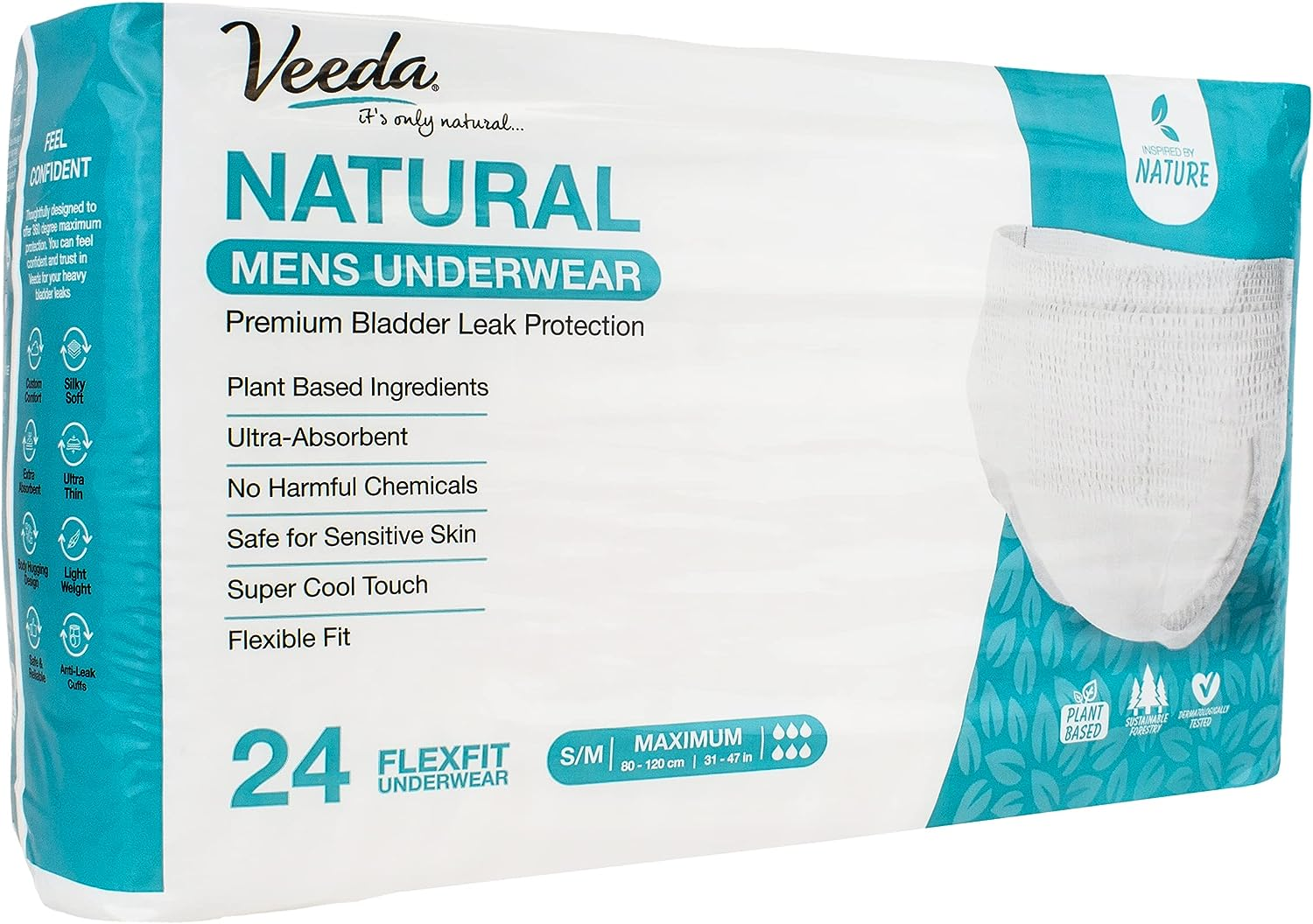
Veeda. men's
Diapers can also be incredibly wasteful–many of them are made from petroleum-based materials that can take up to 500 years or more to break down! So what’s the solution? Make sure tour next purchase is an eco friendly disposable diaper. While not as many makers as baby diapers, here are enough adult sustainable diaper brands to choose from. Affordable earth friendly disposable diapers made from entirely plant based materials..
Benefits of Eco-Friendly Adult Incontinence Products
Eco-friendly adult incontinence products offer numerous benefits for individuals, caregivers, and the environment. Let’s explore some of the key advantages that make these products a superior choice.
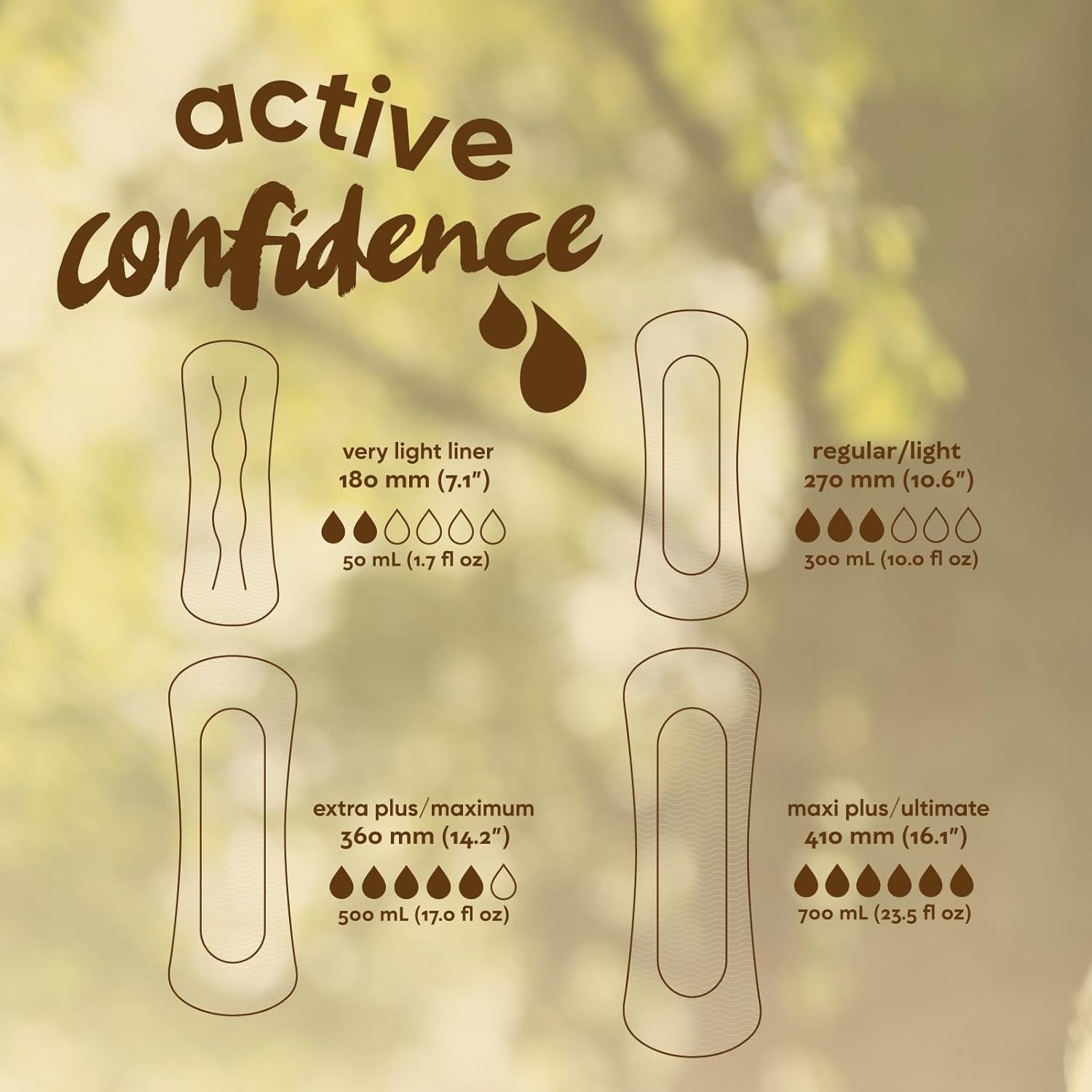
Reduced Environmental Impact
Traditional disposable diapers contribute to millions of tons of waste in landfills each year. Eco-friendly adult incontinence products, on the other hand, are designed to reduce waste and minimize environmental impact. They are made from biodegradable materials that can be composted, reducing the amount of waste sent to landfills.
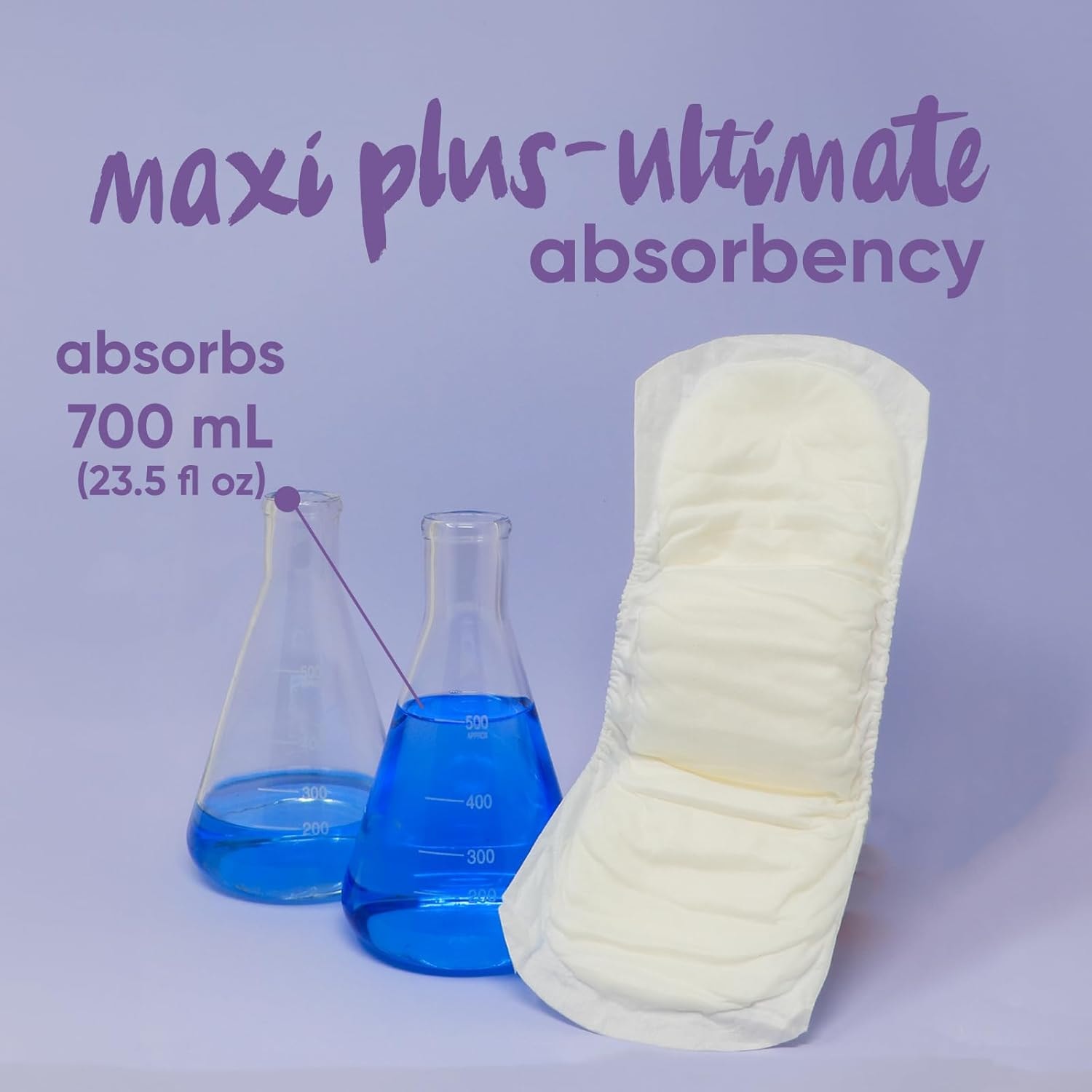
Oi Organic. incontinence control
By opting for eco-friendly disposable diapers, you are helping to decrease the volume of non-biodegradable waste that pollutes our environment. These sustainable diapers are crafted from materials that decompose naturally, ensuring that they leave a minimal footprint. This shift not only benefits the planet but also sets a positive example for future generations.
Cost-Effective and Convenient
Eco-friendly adult incontinence products are not only good for the environment, but they are also cost-effective and convenient. They can be washed and reused multiple times, reducing the need for frequent purchases. They are also designed to be easy to use, making them a convenient option for caregivers and individuals with incontinence issues.
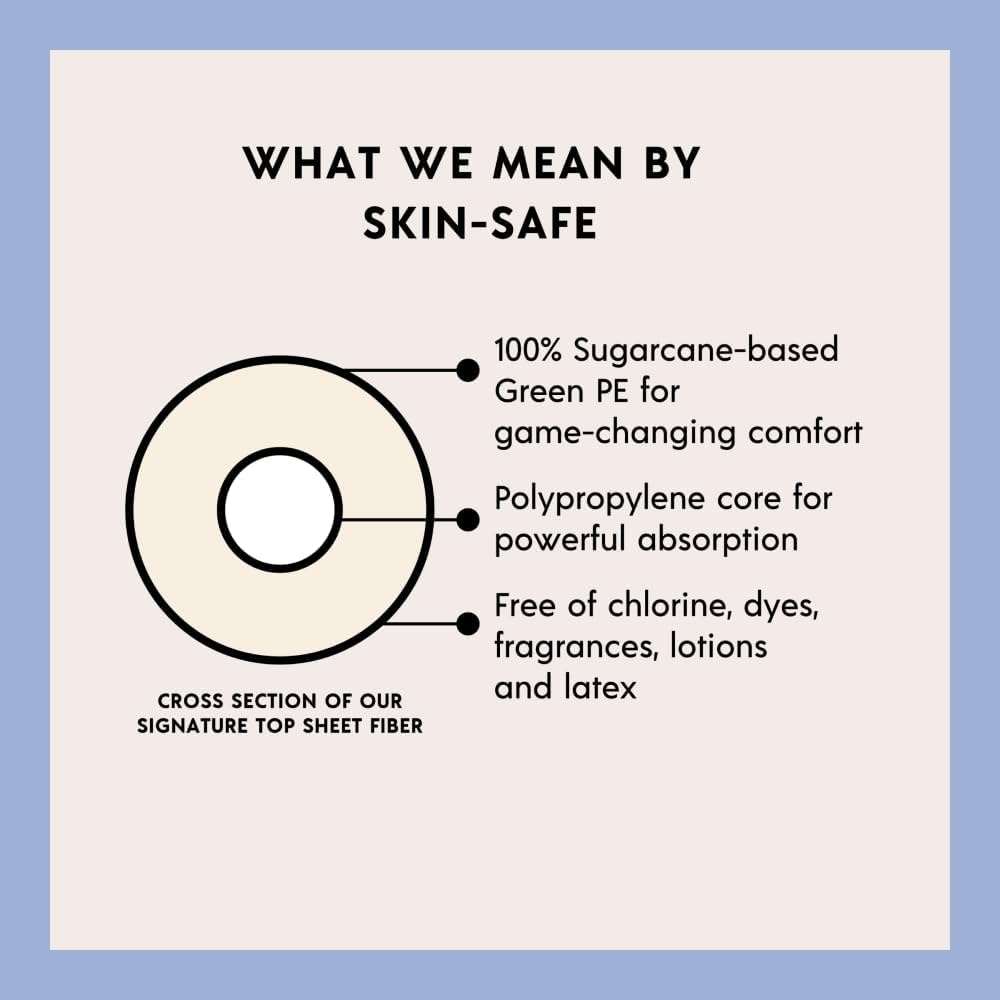
Grace Light Liners for light leaky urinary bladder control
While the initial investment in eco-friendly diapers might be higher, the long-term savings are significant. Reusable cloth diapers, for instance, can be washed and reused, cutting down on the recurring costs associated with traditional disposable diapers. Moreover, these products are designed with user convenience in mind, ensuring that they are easy to handle and maintain.
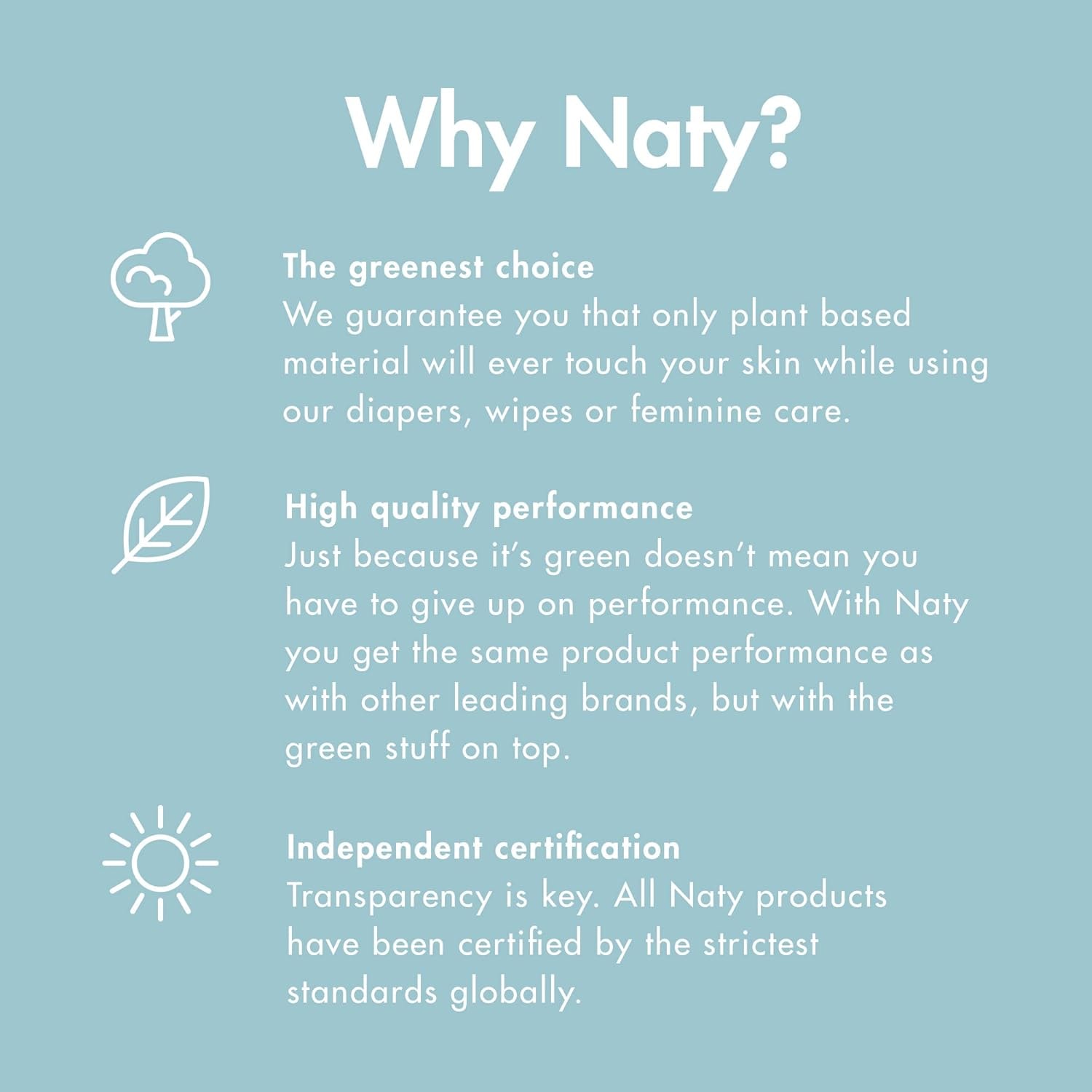
Eco by Naty. light bladder control
In conclusion, eco-friendly adult incontinence products are a smart choice for anyone looking to reduce their environmental impact while maintaining comfort and dignity. By making the switch to sustainable diapers, you are not only taking a step towards a greener future but also ensuring better health and well-being for yourself and the planet.
Best Sustainable Diapers...
... are always plastic free. So consider switching from traditional diapers to a sustainable disposable diapers for your own health as well as the planet's. Besides being much safer for you and your skin since they’re made without wasteful materials like plastics, these eco-friendly options are biodegradable and compostable so they break down faster and reduce waste.
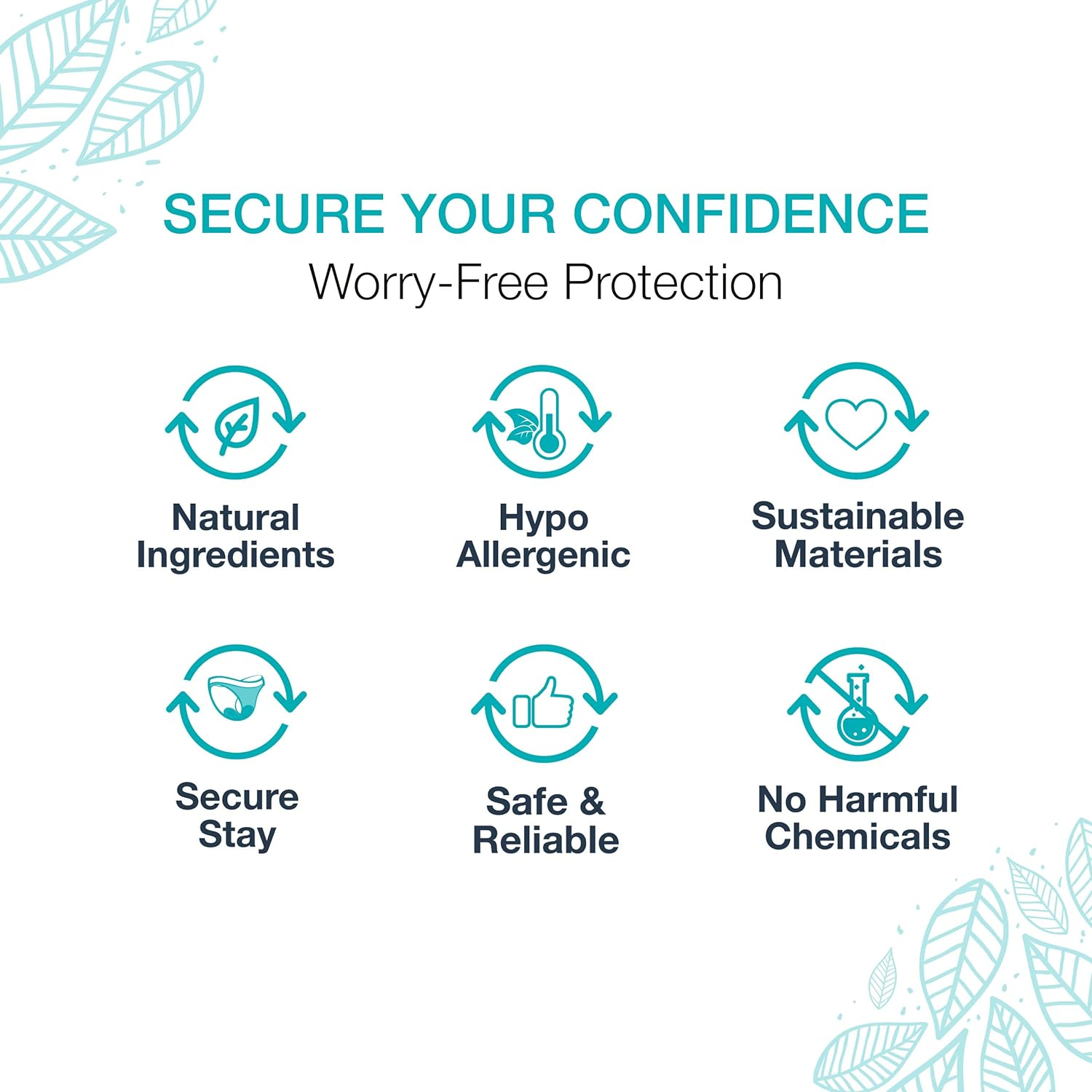
Veeda. men's Veeda, on the other hand. is an excellent brand making incontinence products for both men and women with zero plastics :)
Additionally, many companies use organic cotton or bamboo fabrics instead of nonrenewable resources like oil-based fibers which helps reduce greenhouse gases emissions associated with production processes! So if you want healthier skin and a healthier planet give some thought towards making the switch today!
Cloth Or Hybrid Use of Cloth Diapers
In the quest for better, sustainable, and environmentally friendly products, we have seen a proliferation of adult cloth incontinence products. But are they really more eco-friendly than their disposable counterparts? Let's dive into the facts and semantics of this not-so-glamorous topic.
First of all, let's address the elephant in the room - the icky factor. Yes, reusable cloth diapers and incontinence pads require washing, which means more water usage and potentially more energy consumption.
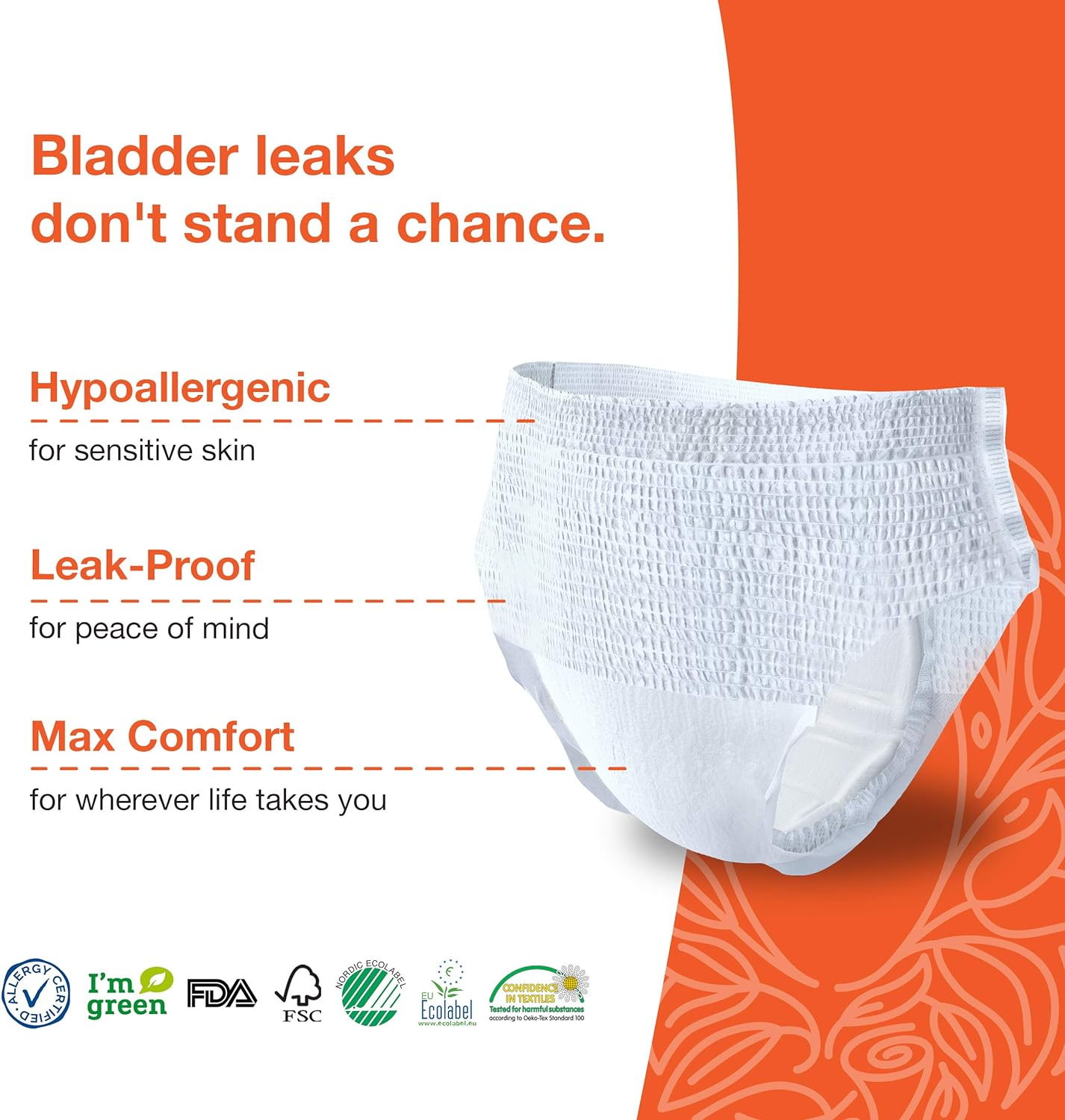
Veeda. women's, and also fine makers of menstrual products
But here's the thing - disposable incontinence products also require water and energy to manufacture, transport, and dispose of. And when they end up in landfills, they take a ridiculous amount of time to decompose, all the while releasing harmful chemicals into the environment.
Now, let's talk about the production process. Traditional disposable diapers are made from synthetic materials such as plastic and chemicals, which not only deplete non-renewable resources but also contribute to greenhouse gas emissions.
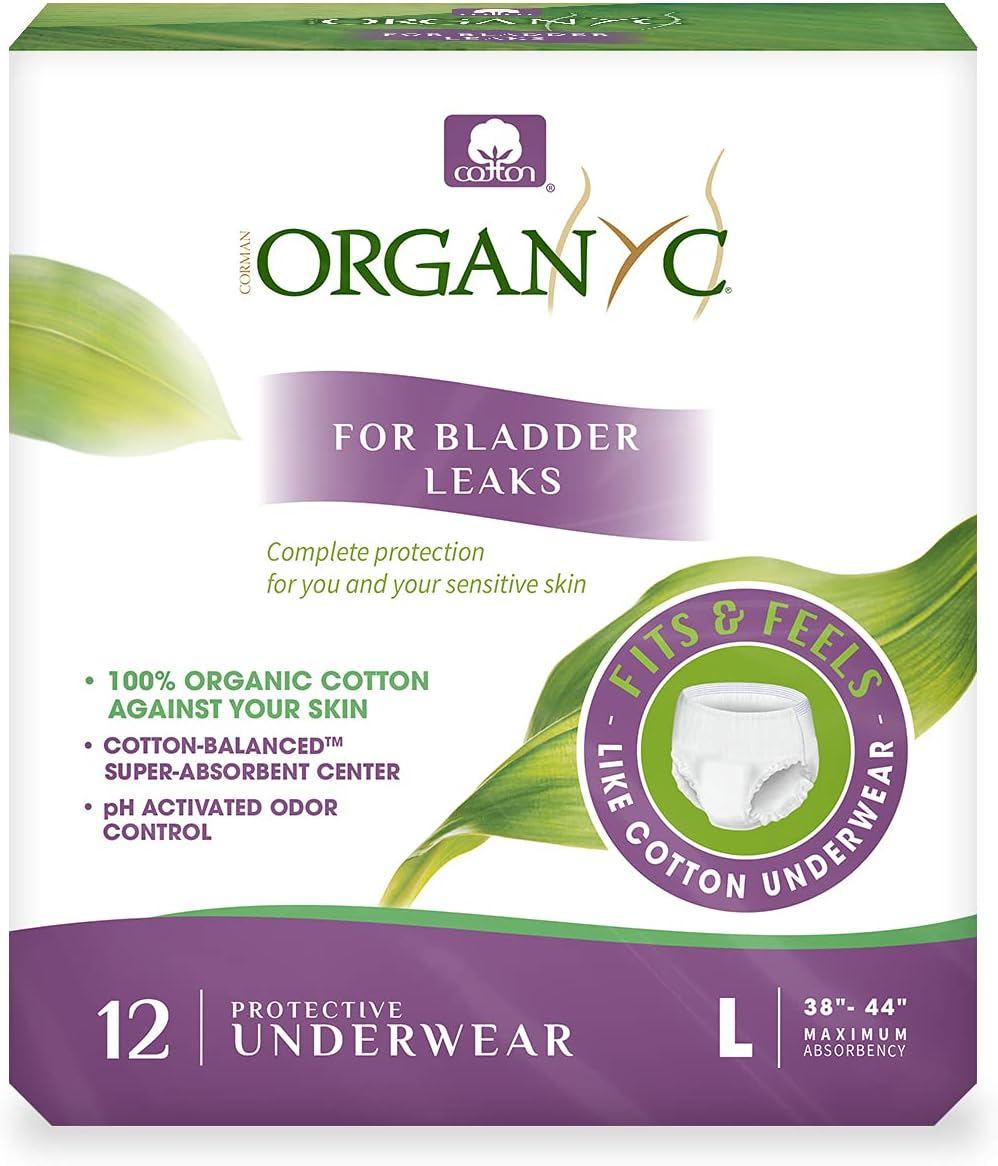
Organyc 100% organic cotton cloth
On the other hand, a cloth diaper is typically made from natural fibers such as cotton or bamboo, which are renewable resources and much less harmful to the environment.
And let's not forget about the cost factor. While cloth diapers may come with a higher upfront cost, they are more cost-effective in the long run as they can be washed and reused multiple times. This not only saves money but also reduces waste in the landfills.
For Plastic Free Baby Diapers Go Here
So, is adult cloth diapering really more eco-friendly? The answer is a resounding yes. They may require some sacrifices in terms of convenience and washing, but the benefits to the environment and your wallet are well worth it. Now, if only we could find a way to make them stylish and chic...
Post use, disposable plastic free products can then all go into a Biodegradable Trash Bag ;)

FAQs
What is the global impact of adult incontinence products?
From the perspective of statistics alone, over five billion adult diapers were sold in 2020 in North America alone. Considering that this number only includes one type of incontinence product for adults, it’s easy to see how quickly our dependence on these items can add up globally each year. In fact, according to some sources estimates suggest that over 20 billion diapers end up in landfills annually across the globe! As if this weren’t alarming enough, estimates suggest that an average diaper takes between 250-500 years to decompose – meaning we will continue having a lasting effect from disposables long after they have been used!
Why are plastic free incontinence products so important?
Plastic-free incontinence products are important because they help minimize our impact on the environment while still providing a needed product for those struggling with incontinence. The average person produces approximately 5 million pounds of plastic over a lifetime, and even if you’re not producing much plastic yourself, it’s still likely that most of your incontinence products contain some form of plastic.
Additionally, by making the switch to sustainable incontinence products you may find that your quality of life improves as well! Many people have reported feeling an increased sense of comfort due to natural materials being more breathable than traditional synthetic fibers found in conventional disposable products; this means breathing is easier during activities like exercise or walking long distances - great news for anyone dealing with incontinence issues!
What are the main difficulties with finding plastic free incontinence products?
When it comes to incontinence products, finding ones that are plastic free can be a real challenge. While many companies have started creating sustainable options, the market as a whole is still saturated with products made of disposable plastic. This can create an issue for those who want to avoid single-use plastics and find greener alternatives.
One of the main difficulties with finding plastic free incontinence products is the limited number available on the market. Most absorbent pads and protective underwear are almost always made of some form of plastic or synthetic material which isn't going to decompose naturally in a short amount of time if it's disposed improperly. Even reusable bed pads have traditionally been made from vinyl and other petroleum-based materials that can cause environmental issues when not recycled properly or composted correctly. So while making changes towards sustainability is absolutely possible, there may be barriers present that make it difficult to find eco-friendly options right away without doing research in advance first. No Plastics has already done some of that research for you.
For more information:
